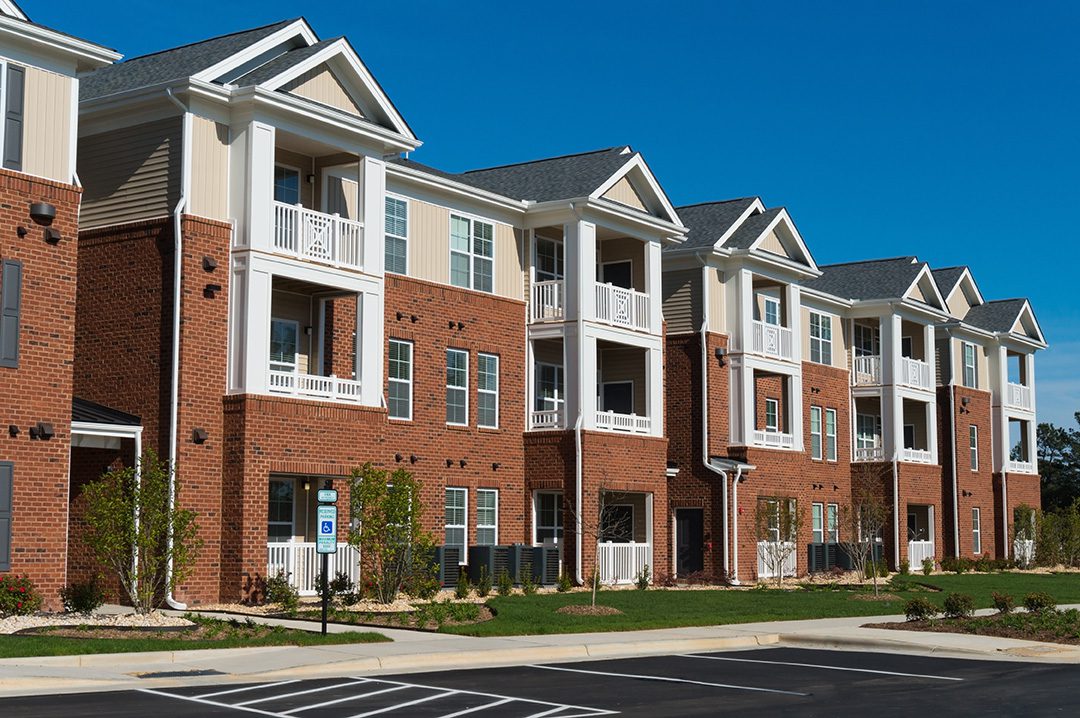
People with criminal records face a number of obstacles that impact their ability to access safe and stable housing in the community. These include limited affordable housing options, policy barriers to housing and employment, and the stigma associated with having a criminal record. Because of these complex challenges, corrections and reentry practitioners must pursue a variety of strategies and partnerships to meet the housing needs of their reentry populations. Representing the majority of available inventory in the housing market, private landlords are a key component of these strategies.
However, private landlords remain a largely untapped resource in reentry initiatives. Corrections and reentry staff may find it daunting to engage them given the large number of small landlords found in most communities and the amount of discretion that private landlords have in selecting tenants. A recent CSG Justice Center and Melville Charitable Trust study also found that people with lived experience in the criminal justice system experienced significant difficulties finding landlords and private management companies willing to rent to them due to their criminal records.
State Efforts to Engage Landlords
These dynamics underscore the need for states to adopt creative education, incentives, and other methods to engage landlords as partners and expand housing options for people leaving prisons and jails. Below are a few examples of efforts currently underway:
- The Kansas Department of Corrections (DOC) partners with landlords for three-year contracts to cover rent for a transitional or temporary unit and provide utilities and a basic level of furnishing to people leaving prison until they can obtain employment. The DOC particularly seeks out landlords with multiple properties so that a person can potentially move to a permanent unit owned by the same person in the future.
- The Michigan DOC partners with regional administrative agencies that recruit and work with landlords and other housing providers on an ongoing basis to increase available housing inventory for people who are homeless and on parole supervision. Landlords across the state have shared their positive experiences with other landlords in their community to promote the program. People who obtain housing through this model are also connected to job placement and retention services. In addition, the DOC partners with the Michigan State Housing Development Authority to give housing choice vouchers to eligible people on parole and increase access to permanent affordable housing for this population. Through these programs, more than 3,000 people exiting prisons have been placed in housing since April 2020.
- The Washington State Department of Commerce administers the state’s landlord mitigation program, which gives landlords an incentive and added security to work with tenants receiving rental assistance by offering reimbursements for any qualifying upgrades, rent losses, or damages caused by a tenant. The program is not specifically targeted to the reentry population but can be leveraged to increase access to housing for people who are exiting prisons and jails and eligible for housing subsidies. Simultaneously, the Washington Statewide Reentry Council has been working to increase access to transitional housing and other essential services for people exiting the state’s correctional facilities. The council is also collaborating with a statewide coalition to address the issue of landlord discrimination against qualified prospective rental housing tenants with arrest or conviction records.
Federal Guidance for Landlords
To further emphasize the need for more permanent housing options for this population, in June, the U.S. Department of Housing and Urban Development (HUD) issued guidance to multifamily property owners and housing providers clarifying that people who are exiting prisons and jails and at risk of homelessness are among the eligible populations for emergency housing vouchers available through the American Rescue Plan (ARP). These vouchers are a valuable source of subsidy and accompanying supportive services that can help provide further incentives for landlords to serve this population. The guidance also details additional steps HUD is taking to increase housing opportunities for people leaving the justice system.
State Reentry Leaders Network and Other Resources
State leaders shared their strategies to engage landlords as part of the State Reentry Leaders Network, an initiative for state-level reentry directors and coordinators across the country to discuss and share innovative approaches to reentry. The CSG Justice Center manages the project with funding from Arnold Ventures. For more information on the network, contact Kecha Dupree at kdupree@csg.org.
For more information on housing partnerships and ways that ARP can support housing and other public health and safety goals, see the following resources:
- Four Steps to Expand Access to Housing for People in the Justice System with Behavioral Health Needs
- Reducing Homelessness for People with Behavioral Health Needs Leaving Prisons and Jails
- The Role of Housing Supports in Reentry
- How One City Used Federal Funds to Create Reentry Housing Opportunities
- How State-Led Housing Initiatives Can Break the Cycle of Criminal Justice Involvement
- American Rescue Plan Act of 2021: Guide to Advancing Justice-Related Goals
Photo credit: Konstantin L/Shutterstock
About the Authors


Governors emphasized a wide range of criminal justice and behavioral health initiatives in this year’s state-of-the-state addresses. From…
Read MoreCorrections leaders balance the complex priorities of maintaining public safety, operating secure facilities, providing needed care and services…
Read MoreThe CSG Justice Center is pleased to announce 5 new members of its advisory board. Hailing from states…
Read More State of the States: Criminal Justice and Behavioral Health Priorities in 2025
State of the States: Criminal Justice and Behavioral Health Priorities in 2025
Governors emphasized a wide range of criminal justice and behavioral health initiatives…
Read More Apply Now for Resident Analyst Program to Increase Data Analysis Capacity at Departments of Corrections
Apply Now for Resident Analyst Program to Increase Data Analysis Capacity at Departments of Corrections
Corrections leaders balance the complex priorities of maintaining public safety, operating secure…
Read More Five New CSG Justice Center Board Members Look to Strengthen Communities and Improve Public Safety
Five New CSG Justice Center Board Members Look to Strengthen Communities and Improve Public Safety
The CSG Justice Center is pleased to announce 5 new members of…
Read More Removing Barriers to Successful Reentry: Q&A with New CSG Justice Center Advisory Board Member Dr. Ronald F. Day
Removing Barriers to Successful Reentry: Q&A with New CSG Justice Center Advisory Board Member Dr. Ronald F. Day
The CSG Justice Center Advisory Board establishes the policy and project priorities…
Read More Transforming Lives with Access to Needed Mental Health Care: Q&A with New CSG Justice Center Advisory Board Member Dr. Courtney Harvey
Transforming Lives with Access to Needed Mental Health Care: Q&A with New CSG Justice Center Advisory Board Member Dr. Courtney Harvey
The CSG Justice Center Advisory Board establishes the policy and project priorities…
Read More Six States Commit to Improving Statewide Strategies to Address Youth Crime, Violence and Behavioral Health
Six States Commit to Improving Statewide Strategies to Address Youth Crime, Violence and Behavioral Health
The Council of State Governments (CSG) Justice Center has launched the Collaborating…
Read More









